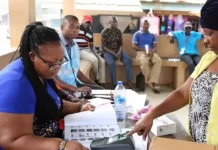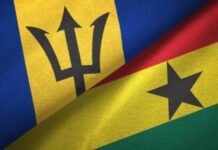
Buyers of Ghana and Ivory
Coast cocoa agreed on Wednesday to a minimum price of $2,600 per tonne, as
proposed by the governments of Ghana and Ivory Coast to address a perceived
imbalance between farmers’ incomes and money made by big commodities traders.
The two West African nations account for nearly two-thirds of global output,
yet they exert limited influence over international cocoa prices, which have
stayed low in recent years due to overproduction.
Representatives from across the industry met in Ghana’s capital Accra this week
to discuss a common floor price for cocoa beans produced in Ghana and Ivory
Coast that would protect farmers’ livelihoods.
Traders, manufacturers and processors agreed to the proposed floor price of
$2,600 per tonne, but requested a technical meeting on July 3 to address
details of its implementation, the Ghanaian and Ivorian agriculture ministries
said.
“This is a historic meeting during which suppliers and buyers have engaged and
agreed on a price below which the producers will not sell,” the chief executive
of Ghana’s Cocobod, Joseph Aidoo, said at a press conference.
His Ivorian counterpart, Yves Kone, said: “We arrived at a consensus and
everyone agrees that the producers are not well remunerated and that something
must be done to improve the conditions of producers.”
Ghana and Ivory Coast earlier on Wednesday suspended forward sales of cocoa
beans for the 2020/21 season until an agreement was reached on the floor price.
This suspension will remain in place while they implement the floor price,
according to the ministries’ statement.
The two countries agreed to harmonise their sales system earlier this year in
an effort to exert more influence on international prices.
They have sought a minimum price for the main crop, calling for sales contracts
below this threshold to be compensated by a living income differential.
Reuters


























